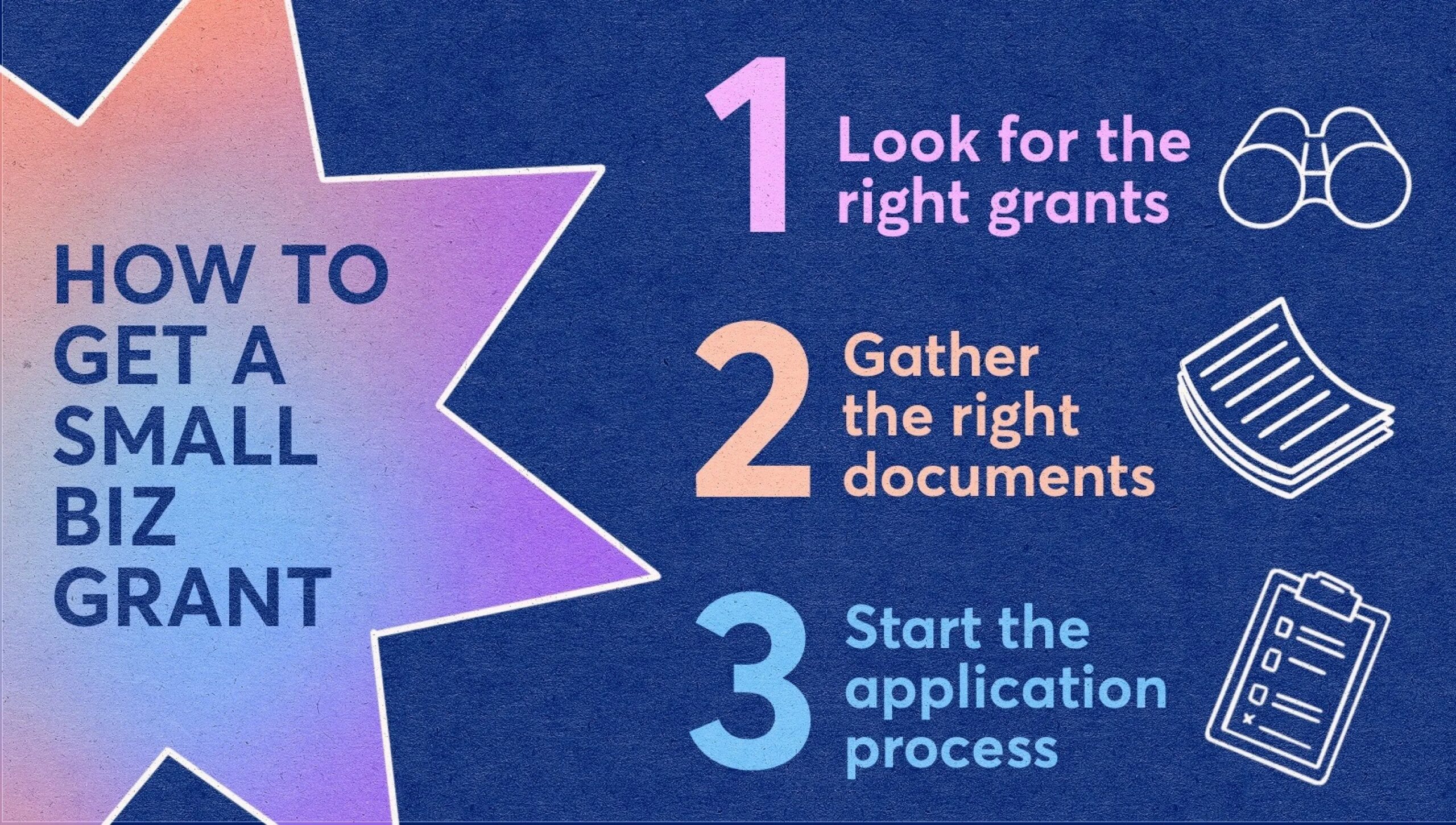Looking for a way to secure funding for your business? Wondering what business grants are and how to get them? You’ve come to the right place! Business grants are financial assistance provided by government agencies, organizations, or corporations to help entrepreneurs and small businesses reach their goals. In this article, we will delve into the world of business grants, explore their benefits, and guide you through the process of obtaining them. So, if you’re eager to navigate the world of business financing effectively, stay tuned!
What are Business Grants and How to Get Them
Whether you’re just starting a business or looking to expand an existing one, access to funding is crucial. Business grants can be a valuable source of financial support, providing you with the necessary capital to realize your entrepreneurial goals. In this comprehensive guide, we will explore what business grants are, the different types available, and the steps you can take to increase your chances of securing a grant.
Understanding Business Grants
A business grant is a sum of money awarded by government agencies, corporations, or charitable organizations to eligible businesses. Unlike loans, grants do not need to be repaid. They are essentially free money that can be used to fund various aspects of your business, such as startup costs, research and development, hiring employees, marketing initiatives, expansion projects, and more.
The Benefits of Business Grants
Business grants offer several advantages over traditional financing options:
1. No Repayment Obligation: Grants are not loans, so you won’t accumulate debt or carry the burden of monthly repayments.
2. Financial Support: Grants can provide the necessary funds to initiate or grow your business, enabling you to achieve your goals faster.
3. Increased Credibility: Securing a grant demonstrates that your business has been vetted and deemed worthy of financial support, adding credibility to your brand.
4. Networking Opportunities: Many grant programs offer networking and mentorship opportunities, allowing you to connect with industry experts and like-minded entrepreneurs.
Types of Business Grants
There are various types of business grants available, each catering to different industries, business sizes, and objectives. Some common types include:
1. Government Grants
Government grants are typically provided by federal, state, or local governments. These grants aim to support economic growth, job creation, and industry-specific initiatives. Examples of government grants include:
- Small Business Innovation Research (SBIR) Grants
- Small Business Technology Transfer (STTR) Grants
- Community Development Block Grants
- Research and Development Grants
- Rural Business Grants
2. Corporate Grants
Many corporations offer grants as part of their corporate social responsibility initiatives. Corporate grants often target specific areas such as education, healthcare, environmental sustainability, or community development. Some well-known corporate grant programs include:
- Google Impact Challenge
- Microsoft AI for Earth
- Walmart Foundation Community Grant Program
- Coca-Cola Foundation Community Support Grants
3. Nonprofit Grants
Nonprofit organizations, foundations, and trusts also provide grants to support businesses that align with their mission and values. Nonprofit grants can be industry-specific or focus on social impact. Examples include:
- Skoll Foundation Grants for Social Entrepreneurs
- Bill and Melinda Gates Foundation Grants
- Rockefeller Foundation Grants for Resilience
- Ford Foundation Grants for Economic Opportunity
How to Get Business Grants
While securing a business grant can be competitive, following these steps can significantly improve your chances of success:
1. Research Grant Opportunities
Start by conducting thorough research to identify grant opportunities that align with your business objectives. Look for grants specific to your industry, geographical location, and target market. Use online databases, government websites, and grant directories to find relevant grants.
2. Understand Eligibility Criteria
Ensure that you meet all the eligibility criteria of the grants you are interested in. Common eligibility factors include business size, location, industry sector, and the purpose for which the grant funds will be used. Review the guidelines and requirements of each grant to determine your eligibility.
3. Develop a Strong Business Plan
A well-structured and comprehensive business plan is essential when applying for a grant. Your business plan should outline your business goals, market analysis, financial projections, and the impact the grant will have on your business. Make sure to clearly demonstrate how the grant funds will be used and how they align with the grant provider’s objectives.
4. Prepare a Compelling Grant Proposal
Crafting a persuasive grant proposal is crucial to impress evaluators and increase your chances of success. Your proposal should clearly articulate your business’s mission, vision, and the problem it aims to solve. Explain how the grant funds will contribute to business growth and societal impact. Include relevant financial information and supporting documents that demonstrate your business’s credibility and potential.
5. Seek Professional Assistance
Consider seeking professional assistance to improve your grant application. Business consultants, grant writers, or industry experts can provide valuable insights and help you fine-tune your proposal. They can offer guidance on selecting the right grants, ensuring your application is well-prepared, and increasing your chances of success.
6. Submitting the Application
Carefully review the grant application guidelines and submit the required documents within the specified deadline. Double-check all the information provided to ensure accuracy and completeness. Keep copies of your application for future reference.
7. Follow Up
After submitting your application, keep track of the evaluation timeline. If there is a delay in hearing back, consider reaching out to the grant provider for an update. If your application is successful, follow any post-award requirements and reporting obligations outlined by the grant provider.
Business grants can be a valuable source of funding, providing entrepreneurs with the financial support needed to start or expand their businesses. By understanding the different types of business grants available, conducting thorough research, and following the necessary steps, you can increase your chances of securing a grant. Remember to tailor your application to the specific grant program and effectively convey the impact the grant will have on your business. So, start exploring grant opportunities today and unlock the potential for your business’s growth and success.
Every Way to Get Small Business Grants in 2022! [Local, State, and Federal Grants]
Frequently Asked Questions
Frequently Asked Questions (FAQs)
What are business grants?
Business grants are financial assistance provided by government organizations, non-profit organizations, or private entities to support the growth and development of small businesses. These grants are typically non-repayable, meaning businesses do not have to pay them back.
How can I get a business grant?
To obtain a business grant, you can follow these steps:
1. Research available grants: Look for grants that align with your business needs and eligibility criteria.
2. Prepare your business plan: A well-structured and detailed business plan will increase your chances of securing a grant.
3. Meet the eligibility requirements: Ensure that your business meets all the criteria set by the grant provider.
4. Complete the grant application: Fill out the application form accurately, providing all the necessary information and supporting documents.
5. Submit the application: Submit your application before the deadline and ensure it is complete and error-free.
Are business grants only available for specific industries?
No, business grants are available for various industries and sectors. There are grants designed specifically for technology startups, women-owned businesses, minority-owned businesses, rural businesses, and more. It is essential to research and identify grants that are relevant to your industry.
Do I need to repay a business grant?
Typically, business grants are non-repayable, meaning you do not have to pay them back. However, it is important to carefully read the terms and conditions of each grant program, as some may have specific requirements or obligations.
What criteria do grant providers consider when selecting recipients?
Grant providers evaluate various factors when selecting grant recipients, including:
– The viability and potential of your business idea or plan
– The impact your business will have on the local economy or community
– The alignment of your business goals with the objectives of the grant program
– The financial need and stability of your business
Can I apply for multiple business grants?
Yes, it is possible to apply for multiple business grants. However, it is essential to ensure that you meet the eligibility criteria for each grant and carefully manage your applications to avoid conflicting obligations or potential funding issues.
What should I include in my grant application?
When applying for a business grant, make sure to include the following in your application:
– A clear and concise description of your business and its objectives
– A detailed business plan, including financial projections and growth strategies
– Proof of eligibility, such as business registration documents or certifications
– Any supporting documents requested by the grant provider, such as resumes, references, or letters of recommendation
What are some common mistakes to avoid when applying for business grants?
When applying for business grants, avoid these common mistakes:
– Failing to thoroughly research the grant requirements and eligibility criteria
– Submitting an incomplete or poorly written application
– Neglecting to provide the necessary supporting documents
– Missing the application deadline
– Failing to follow up on the status of your application
Is assistance available for preparing grant applications?
Yes, there are resources available to help you prepare and improve your grant applications. You can seek assistance from small business development centers, consulting firms, or online resources that provide guidance on grant application processes, including tips for writing persuasive proposals.
Final Thoughts
Business grants are a valuable source of funding for entrepreneurs and small businesses. These grants are essentially free money provided by government entities, private organizations, or philanthropic foundations to support specific business activities or initiatives. To secure a business grant, it is crucial to thoroughly research and identify grant opportunities that align with your business goals and objectives. Once you have identified a suitable grant, carefully review the eligibility criteria and requirements. Prepare a compelling grant proposal that clearly outlines your business idea, its potential impact, and how the grant funds will be utilized. Submit your proposal by the specified deadline and follow up with the grant provider, if required. Remember, obtaining business grants takes time, effort, and a strong application that demonstrates your business’s merit and aligns with the specific objectives of the grant program.



